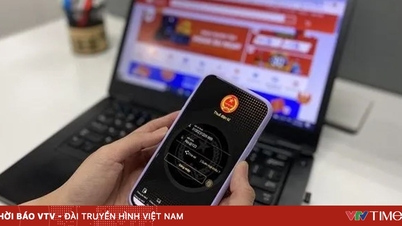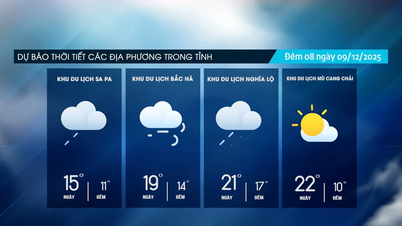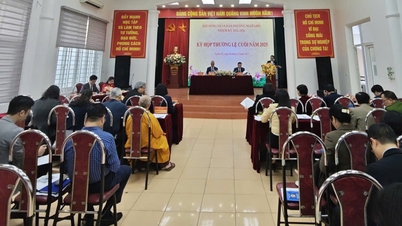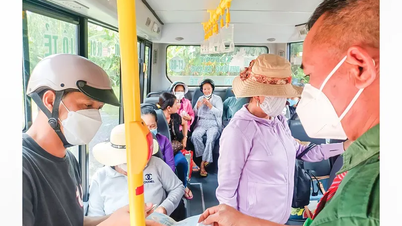At the workshop on building a safe environment for workers, organized by the Vietnam General Confederation of Labor in coordination with Lao Dong Newspaper, a representative of Hanoi City Police said that recently, 48 companies in 6 industrial parks in the city reported being harassed by debt collectors related to 137 workers who had borrowed money. Of these, 88 borrowed money through licensed financial companies and banks, and 9 borrowed money through mobile phone applications and loan websites - an unlicensed type.
Some people borrow 50 million VND urgently, but the actual interest rate is much higher than advertised. Borrowers are unable to pay periodically so they are often subject to penalty interest and very high overdue debt. Some cases of borrowing through the application have interest rates up to 365% to 730% per year.

Workers in Tan Phu district, Ho Chi Minh City listen to propaganda about preventing and fighting black credit .
Hanoi City Police predict that high-tech crimes will increase with many new methods and tricks. In fact, in the first quarter of 2024, the number of cases related to illegal credit that were cracked down by the police increased by 15 cases compared to the same period in 2023. Last year, the police discovered, investigated, and prosecuted 32 cases with 118 subjects. However, this is only a small number because workers are afraid to report, fear retaliation, or worry that the police will clarify the purpose of the loan used for illegal purposes.
To avoid falling into the trap of black credit, Mr. Ngo Minh Hieu, National Center for Cyber Security and Monitoring, said that first of all, workers must be careful with lending applications and have preventive skills when using social networks. Because losing Facebook is more dangerous than losing a bank account.
"Losing a bank account only costs money, but losing a Facebook account can expose information and images, and criminals can easily impersonate users to scam friends on the list to steal money under the guise of "borrowing money". They can even cut and paste information and images of victims and then impersonate them to scam or buy and sell information on the "black market" online," Mr. Hieu explained.
Losing Facebook accounts and exposing personal information often comes from posts set to public mode, users rarely change passwords or change them to easy-to-guess ones. Hackers are always looking for the weakest loopholes, and humans are the weakest loopholes, easily clicking on links or downloading malicious files and activating them. If infected with malware, in just a few seconds, users can have all their data and information stored on their devices stolen.
According to Mr. Hieu, workers should not install strange applications, only install verified official applications. In addition, only share articles in friends view mode, not make them public; increase security by regularly changing application passwords. In particular, do not click on attachments and links unless you are sure they come from a legitimate source; use an email scanner to verify before opening.
Source



![[Photo] General Secretary To Lam receives the Director of the Academy of Public Administration and National Economy under the President of the Russian Federation](/_next/image?url=https%3A%2F%2Fvphoto.vietnam.vn%2Fthumb%2F1200x675%2Fvietnam%2Fresource%2FIMAGE%2F2025%2F12%2F08%2F1765200203892_a1-bnd-0933-4198-jpg.webp&w=3840&q=75)














































































































Comment (0)